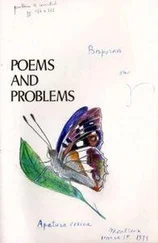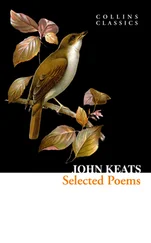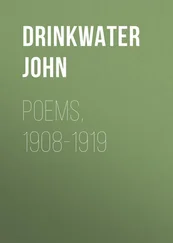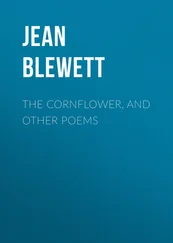John Keats - Poems 1817
Здесь есть возможность читать онлайн «John Keats - Poems 1817» весь текст электронной книги совершенно бесплатно (целиком полную версию без сокращений). В некоторых случаях можно слушать аудио, скачать через торрент в формате fb2 и присутствует краткое содержание. Год выпуска: 2005, Жанр: Поэзия, на английском языке. Описание произведения, (предисловие) а так же отзывы посетителей доступны на портале библиотеки ЛибКат.
- Название:Poems 1817
- Автор:
- Жанр:
- Год:2005
- ISBN:нет данных
- Рейтинг книги:4 / 5. Голосов: 1
-
Избранное:Добавить в избранное
- Отзывы:
-
Ваша оценка:
- 80
- 1
- 2
- 3
- 4
- 5
Poems 1817: краткое содержание, описание и аннотация
Предлагаем к чтению аннотацию, описание, краткое содержание или предисловие (зависит от того, что написал сам автор книги «Poems 1817»). Если вы не нашли необходимую информацию о книге — напишите в комментариях, мы постараемся отыскать её.
Poems 1817 — читать онлайн бесплатно полную книгу (весь текст) целиком
Ниже представлен текст книги, разбитый по страницам. Система сохранения места последней прочитанной страницы, позволяет с удобством читать онлайн бесплатно книгу «Poems 1817», без необходимости каждый раз заново искать на чём Вы остановились. Поставьте закладку, и сможете в любой момент перейти на страницу, на которой закончили чтение.
Интервал:
Закладка:
These wonders strange be sees, and many more,
Whose head is pregnant with poetic lore.
Should he upon an evening ramble fare
With forehead to the soothing breezes bare,
Would he naught see but the dark, silent blue
With all its diamonds trembling through and through:
Or the coy moon, when in the waviness
Of whitest clouds she does her beauty dress,
And staidly paces higher up, and higher,
Like a sweet nun in holy-day attire?
Ah, yes! much more would start into his sight—
The revelries, and mysteries of night:
And should I ever see them, I will tell you
Such tales as needs must with amazement spell you.
These are the living pleasures of the bard:
But richer far posterity's award.
What does he murmur with his latest breath,
While his proud eye looks through the film of death?
"What though I leave this dull, and earthly mould,
Yet shall my spirit lofty converse hold
With after times.—The patriot shall feel
My stern alarum, and unsheath his steel;
Or, in the senate thunder out my numbers
To startle princes from their easy slumbers.
The sage will mingle with each moral theme
My happy thoughts sententious; he will teem
With lofty periods when my verses fire him,
And then I'll stoop from heaven to inspire him.
Lays have I left of such a dear delight
That maids will sing them on their bridal night.
Gay villagers, upon a morn of May
When they have tired their gentle limbs, with play,
And form'd a snowy circle on the grass,
And plac'd in midst of all that lovely lass
Who chosen is their queen,—with her fine head
Crowned with flowers purple, white, and red:
For there the lily, and the musk-rose, sighing,
Are emblems true of hapless lovers dying:
Between her breasts, that never yet felt trouble,
A bunch of violets full blown, and double,
Serenely sleep:—she from a casket takes
A little book,—and then a joy awakes
About each youthful heart,—with stifled cries,
And rubbing of white hands, and sparkling eyes:
For she's to read a tale of hopes, and fears;
One that I foster'd in my youthful years:
The pearls, that on each glist'ning circlet sleep,
Gush ever and anon with silent creep,
Lured by the innocent dimples. To sweet rest
Shall the dear babe, upon its mother's breast,
Be lull'd with songs of mine. Fair world, adieu!
Thy dales, and hills, are fading from my view:
Swiftly I mount, upon wide spreading pinions,
Far from the narrow bounds of thy dominions.
Full joy I feel, while thus I cleave the air,
That my soft verse will charm thy daughters fair,
And warm thy sons!" Ah, my dear friend and brother,
Could I, at once, my mad ambition smother,
For tasting joys like these, sure I should be
Happier, and dearer to society.
At times, 'tis true, I've felt relief from pain
When some bright thought has darted through my brain:
Through all that day I've felt a greater pleasure
Than if I'd brought to light a hidden treasure.
As to my sonnets, though none else should heed them,
I feel delighted, still, that you should read them.
Of late, too, I have had much calm enjoyment,
Stretch'd on the grass at my best lov'd employment
Of scribbling lines for you. These things I thought
While, in my face, the freshest breeze I caught.
E'en now I'm pillow'd on a bed of flowers
That crowns a lofty clift, which proudly towers
Above the ocean-waves. The stalks, and blades,
Chequer my tablet with their, quivering shades.
On one side is a field of drooping oats,
Through which the poppies show their scarlet coats
So pert and useless, that they bring to mind
The scarlet coats that pester human-kind.
And on the other side, outspread, is seen
Ocean's blue mantle streak'd with purple, and green.
Now 'tis I see a canvass'd ship, and now
Mark the bright silver curling round her prow.
I see the lark down-dropping to his nest.
And the broad winged sea-gull never at rest;
For when no more he spreads his feathers free,
His breast is dancing on the restless sea.
Now I direct my eyes into the west,
Which at this moment is in sunbeams drest:
Why westward turn? 'Twas but to say adieu!
'Twas but to kiss my hand, dear George, to you!
August, 1816.
TO
CHARLES COWDEN CLARKE.
Oft have you seen a swan superbly frowning,
And with proud breast his own white shadow crowning;
He slants his neck beneath the waters bright
So silently, it seems a beam of light
Come from the galaxy: anon he sports,—
With outspread wings the Naiad Zephyr courts,
Or ruffles all the surface of the lake
In striving from its crystal face to take
Some diamond water drops, and them to treasure
In milky nest, and sip them off at leisure.
But not a moment can he there insure them,
Nor to such downy rest can he allure them;
For down they rush as though they would be free,
And drop like hours into eternity.
Just like that bird am I in loss of time,
Whene'er I venture on the stream of rhyme;
With shatter'd boat, oar snapt, and canvass rent,
I slowly sail, scarce knowing my intent;
Still scooping up the water with my fingers,
In which a trembling diamond never lingers.
By this, friend Charles, you may full plainly see
Why I have never penn'd a line to thee:
Because my thoughts were never free, and clear,
And little fit to please a classic ear;
Because my wine was of too poor a savour
For one whose palate gladdens in the flavour
Of sparkling Helicon:—small good it were
To take him to a desert rude, and bare.
Who had on Baiae's shore reclin'd at ease,
While Tasso's page was floating in a breeze
That gave soft music from Armida's bowers,
Mingled with fragrance from her rarest flowers:
Small good to one who had by Mulla's stream
Fondled the maidens with the breasts of cream;
Who had beheld Belphoebe in a brook,
And lovely Una in a leafy nook,
And Archimago leaning o'er his book:
Who had of all that's sweet tasted, and seen,
From silv'ry ripple, up to beauty's queen;
From the sequester'd haunts of gay Titania,
To the blue dwelling of divine Urania:
One, who, of late, had ta'en sweet forest walks
With him who elegantly chats, and talks—
The wrong'd Libert as,—who has told you stories
Of laurel chaplets, and Apollo's glories;
Of troops chivalrous prancing; through a city,
And tearful ladies made for love, and pity:
With many else which I have never known.
Thus have I thought; and days on days have flown
Slowly, or rapidly—unwilling still
For you to try my dull, unlearned quill.
Nor should I now, but that I've known you long;
That you first taught me all the sweets of song:
The grand, the sweet, the terse, the free, the fine;
What swell'd with pathos, and what right divine:
Spenserian vowels that elope with ease,
And float along like birds o'er summer seas;
Miltonian storms, and more, Miltonian tenderness;
Michael in arms, and more, meek Eve's fair slenderness.
Who read for me the sonnet swelling loudly
Up to its climax and then dying proudly?
Who found for me the grandeur of the ode,
Growing, like Atlas, stronger from its load?
Who let me taste that more than cordial dram,
The sharp, the rapier-pointed epigram?
Shew'd me that epic was of all the king,
Round, vast, and spanning all like Saturn's ring?
You too upheld the veil from Clio's beauty,
And pointed out the patriot's stern duty;
The might of Alfred, and the shaft of Tell;
The hand of Brutus, that so grandly fell
Upon a tyrant's head. Ah! had I never seen,
Or known your kindness, what might I have been?
What my enjoyments in my youthful years,
Bereft of all that now my life endears?
And can I e'er these benefits forget?
And can I e'er repay the friendly debt?
No, doubly no;—yet should these rhymings please,
I shall roll on the grass with two-fold ease:
For I have long time been my fancy feeding
With hopes that you would one day think the reading
Of my rough verses not an hour misspent;
Should it e'er be so, what a rich content!
Some weeks have pass'd since last I saw the spires
In lucent Thames reflected:—warm desires
To see the sun o'er peep the eastern dimness,
And morning shadows streaking into slimness
Across the lawny fields, and pebbly water;
To mark the time as they grow broad, and shorter;
To feel the air that plays about the hills,
And sips its freshness from the little rills;
To see high, golden corn wave in the light
When Cynthia smiles upon a summer's night,
And peers among the cloudlet's jet and white,
As though she were reclining in a bed
Of bean blossoms, in heaven freshly shed.
No sooner had I stepp'd into these pleasures
Than I began to think of rhymes and measures:
The air that floated by me seem'd to say
"Write! thou wilt never have a better day."
And so I did. When many lines I'd written,
Though with their grace I was not oversmitten,
Yet, as my hand was warm, I thought I'd better
Trust to my feelings, and write you a letter.
Such an attempt required an inspiration
Of a peculiar sort,—a consummation;—
Which, had I felt, these scribblings might have been
Verses from which the soul would never wean:
But many days have past since last my heart
Was warm'd luxuriously by divine Mozart;
By Arne delighted, or by Handel madden'd;
Or by the song of Erin pierc'd and sadden'd:
What time you were before the music sitting,
And the rich notes to each sensation fitting.
Since I have walk'd with you through shady lanes
That freshly terminate in open plains,
And revel'd in a chat that ceased not
When at night-fall among your books we got:
No, nor when supper came, nor after that,—
Nor when reluctantly I took my hat;
No, nor till cordially you shook my hand
Mid-way between our homes:—your accents bland
Still sounded in my ears, when I no more
Could hear your footsteps touch the grav'ly floor.
Sometimes I lost them, and then found again;
You chang'd the footpath for the grassy plain.
In those still moments I have wish'd you joys
That well you know to honour:—"Life's very toys
With him," said I, "will take a pleasant charm;
It cannot be that ought will work him harm."
These thoughts now come o'er me with all their might:—
Again I shake your hand,—friend Charles, good night.
Интервал:
Закладка:
Похожие книги на «Poems 1817»
Представляем Вашему вниманию похожие книги на «Poems 1817» списком для выбора. Мы отобрали схожую по названию и смыслу литературу в надежде предоставить читателям больше вариантов отыскать новые, интересные, ещё непрочитанные произведения.
Обсуждение, отзывы о книге «Poems 1817» и просто собственные мнения читателей. Оставьте ваши комментарии, напишите, что Вы думаете о произведении, его смысле или главных героях. Укажите что конкретно понравилось, а что нет, и почему Вы так считаете.












